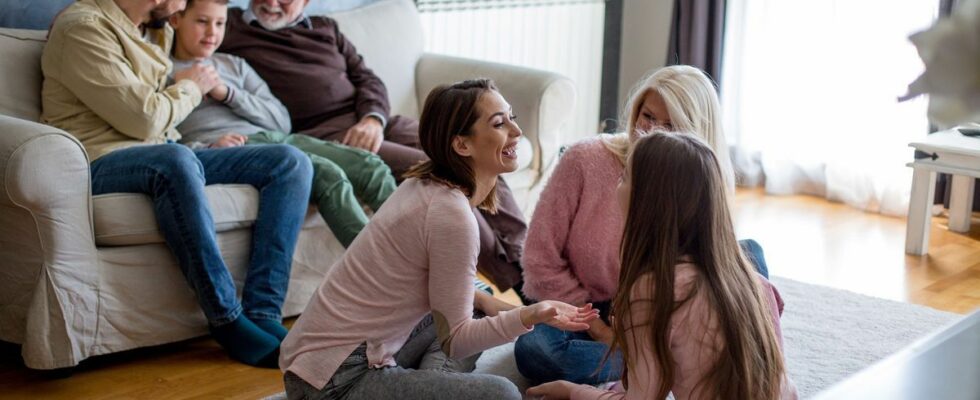Published on
updated on
Reading 3 min.
Follow step by step the state of health and lifestyles of French volunteer families, over several generations, to better understand what exposes you to certain diseases, or protects against them: launched more than 30 years ago, a vast project of French research continues to grow.
It all started in 1990, when 100,000 women, born between 1925 and 1950 and members of the National Education Mutual, agreed to participate in a study on their health, at the initiative of a researcher from the National Institute of Health. health and medical research (Inserm), Françoise Clavel-Chapelon.
“The original objective was to study the links between reproductive and hormonal factors, lifestyle, particularly diet, and the occurrence of diseases, notably cancer.“, recalled Gianluca Severi, current coordinator of the E3N-Generations cohort, during a recent scientific day.
Where patient cohorts are focused on a pathology, prospective population cohorts provide health information in general.
Cancers, cardiovascular diseases, diabetes, obesity, Parkinson’s disease, asthma, inflammatory bowel diseases, depression or endometriosis, this cohort -coordinated by Inserm, Paris-Saclay University and the Gustave-Roussy Institute- explores numerous chronic pathologies.
Over the years, scientists have “expanded their research to pathologies other than cancer and developed the family aspect, over three generations, to study contemporary lifestyle and the transmission of exposures and health events“, according to Gianluca Severi.
Family adventure
Because the members of a family share genes, habits, places of life. Fathers of children from the initial women joined the experiment in 2014, children since 2018, grandchildren will be invited from 2026. The hope is to ultimately bring together 20,000 families and 200,000 people over three generations.
Regular questionnaires, biological samples (saliva, blood today, urine, hair and nails tomorrow), technological tools (connected bracelets, pollution sensors, etc.) fuel the collection of information. The health insurance and medication reimbursement data from the mutual insurance company are added to this.
E3N-Generations is one of the rare generational epidemiological studies of such size in the world, its creators boast. This is the French part of a vast European study on the links between diet and cancer.
This scientific exploration doubles as a family adventure.
Jean-Claude thus followed in the footsteps of his wife, Mireille. “Medical advances don’t happen without people who have contributed“, And “since our youth, we have benefited from it“, explains to AFP this 78-year-old man, who “came out well” from three cancers “caught in time”. From the E3N-Générations experience, he also retained, like his wife, the feeling of ‘be “in nails for diet or physical activity“.
“Future generations”
Mireille, 77 years old, “is amused to see what has evolved with age: before, I had no worries when people asked me if I ran or if I climbed the stairs“, she said. One of their daughters, a nurse, joined the cohort, the other is “not yet convinced”.
Marie-Hélène followed in the footsteps of her mother Marie, “involved from the start for something that can be of use to future generations“.”Dad had cancer, maybe that made her aware“, she confided to AFP.
“Help others so that they do not experience what we experienced“, this is also what motivated this 62-year-old Ile-de-France resident.”The illness fell on me: severe asthma and COPD (smoker’s bronchitis) – the effect of passive smoking because my dad was a smoker. But my health and quality of life would probably be worse without my lifestyle: what I put on my plate and my physical activity.“.
She encouraged her daughters, aged 32 and 28, to join the ranks of the third generation. Without success so far.
Integrating new generations is “a challenge” in public health research, observes Gianluca Severi. “With digital technologies, life has changed, the available time has probably decreased“, he observes, but “innovative data collection tools” can help remedy this.
